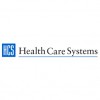
A recognized leader in clinical information systems with solutions that improve patient safety, meet and exceed compliance needs, and optimize clinical workflow and data aggregation.
HCS Medication Reconciliation - This application simplifies the steps involved in medication reconciliation: obtaining a comprehensive history of a patient's current medications upon visit, determining which medications should be continued, and providing a powerful discharge reconciliation tool that aggregates the patient's history, current visit, and outpatient formulary into one simple workflow.
HCS Medication Reconciliation - This application simplifies the steps involved in medication reconciliation: obtaining a comprehensive history of a patient's current medications upon visit, determining which medications should be continued, and providing a powerful discharge reconciliation tool that aggregates the patient's history, current visit, and outpatient formulary into one simple workflow.
Services
Health Care Systems, Inc. (HCS) was founded in 1983 by a pharmacist and a software engineer who shared a vision of developing clinical software applications to meet the needs of hospitals and health care facilities. As the client base steadily grew, so did HCS's clinical software offerings. Today, HCS develops and distributes innovative software solutions to hundreds of hospitals and clinics across the United States.
Health Care Systems, Inc. (HCS) was founded in 1983 by a pharmacist and a software engineer who shared a vision of developing clinical software applications to meet the needs of hospitals and health care facilities. As the client base steadily grew, so did HCS's clinical software offerings. Today, HCS develops and distributes innovative software solutions to hundreds of hospitals and clinics across the United States.
HCS is pleased to announce that Glen Oaks Hospital has chosen HCS ePharmacy, eMAR, and Medication Reconciliation with ePrescribing to improve patient safety at their hospital. Glen Oaks Hospital is a 54-bed private hospital in a relaxed setting in Greenville, Texas. Glen Oaks Hospital's comfortable, homelike atmosphere is conducive to healing.
Rideout Health system, a 179 bed acute care hospital in Marysville, CA, uses HCS Medication Reconciliation, including medication history results provided through Surescripts and other data sources. Rideout was able to meet its goals of improving patient safety by completing a more thorough medication reconciliation.
Overall, 20% to 30% of prescriptions are never filled, and about 50% are not continued as prescribed, according to the U.S. Centers for Disease Control and Prevention. So, how can we prevent positively impact patient's lives by preventing them from coming back to the hospital because of medication non-compliance?
Reviews

Be the first to review Health Care Systems.
Write a Review
